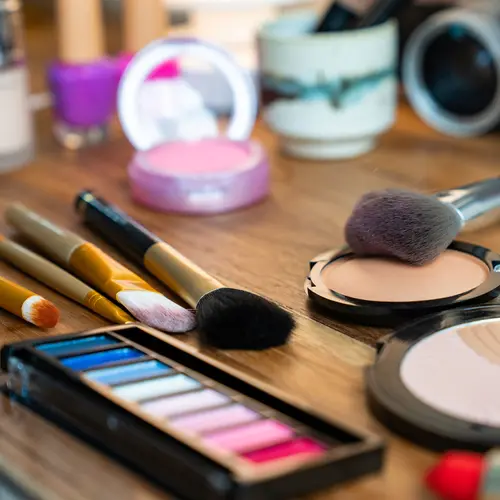There are half a dozen types of over-the-counter shampoos for itchy scalp. How do you know which one to try? First, find out what is causing your itchy, dry scalp symptoms. Itchy scalp causes can range from an allergic reaction to ringworm. Special shampoos can often help with dandruff, psoriasis, or head lice. For other scalp problems, you may need to get a prescription from your doctor.
Shampoos for Dandruff
Dandruff is a common scalp problem, but it isn't contagious. If you see lots of tiny flakes of skin on your shirt or in your hair, eyebrows, or facial hair, it's probably dandruff. The symptoms of dandruff can get worse with stress or during cold, dry weather.
To treat dandruff, use a dandruff shampoo in place of your regular shampoo once or twice a week. Follow the directions on the back of the bottle, as the different types of dandruff shampoo have different instructions. You are supposed to lather some shampoos and leave them in for five minutes before rinsing. Other dandruff shampoos shouldn't sit for a long time on your skin, and you should rinse them out right away.
If the first type of dandruff shampoo doesn't work well enough, try a different kind. Some people find that one type of shampoo will work for a while, then they have to switch. It's okay to alternate back and forth between two or three of the different types of dandruff shampoo. Some fight the fungus that can lead to dandruff, while others are meant to help with the symptoms of dandruff.
The following are common dandruff shampoos:
- Fluocinolone shampoos use a medication called a corticosteroid to help reduce itching and flaking.
- Ketoconazole shampoos have an antifungal, an ingredient that kills the fungus that can cause dandruff.
- Pyrithione zinc shampoos use an antifungal called zinc pyrithione that also fights bacteria.
- Salicylic acid shampoos reduce flaking and can help moisturize a dry scalp.
- Selenium sulfide shampoos also contain an antifungal. Be sure to rinse all the shampoo out so it doesn't stain your hair or scalp.
- Tar shampoos are made from coal tar. They slow down the process by which skin cells on your scalp die off, which can help with flaking. Tar shampoos may stain your hair if it is light in color.
Shampoos for Psoriasis
Psoriasis happens when your immune system attacks your skin cells. In response, your body makes lots of new skin cells, which pile up and form red patches with a silvery-white shine to them. Scalp psoriasis can appear in small patches or can cover the whole scalp and spread to the forehead or neck.
Other symptoms include itching, dryness, hair loss, bleeding, and a burning feeling on the scalp. Talk with your doctor about treatment options such as topical medications, medicated shampoos, and light therapy.
Over-the-counter (OTC) shampoos can help treat mild psoriasis symptoms. During a flare-up, OTC shampoos can help soften and wash away scale so that your prescription topical medication can get through to your scalp.
Ask your dermatologist about trying one of the following types of shampoo:
- Coal tar shampoo can help cut down on the overgrowth of skin cells and help your body shed dead cells.
- Shampoos containing hydrocortisone can help reduce swelling, redness, and itching.
- Shampoos with salicylic acid, urea, or lactic acid soften and gently peel away thick scales.
Shampoos for Ringworm
Ringworm has nothing at all to do with worms. It is a fungal infection common in children. Ringworm on the scalp, also known as tinea capitis, looks like a red bald spot. You can treat some types of ringworm with over-the-counter antifungal cream, but for ringworm of the scalp, you must take a prescription oral medication (pills) for one to three months.
Shampoos for Head Lice
Itching is one of the most common symptoms of head lice, tiny insects that live on or near a human scalp. The only way to know for sure that a person has head lice is to see one of the lice crawling in the person's hair. Over-the-counter lice medicine is called pediculicide. Follow the directions on the box carefully.
Tips for head lice treatment:
- Treat everyone in the household who is infected at the same time.
- Do not use conditioner on your hair right before applying the lice medication.
- Do not wash your hair again for 24-48 hours after you rinse out the lice treatment.
- Wash clothing, pillowcases, sheets, and towels each infected person used in the two days before the lice treatment. Use the hot water cycle on the washer and high heat on the dryer.
- Soak combs and hairbrushes in very hot water for at least five minutes.
Shampoos for Eczema
Eczema is a skin condition that shows up as red, itchy, scaly areas on your skin. Atopic dermatitis, a type of eczema, can make your scalp dry and itchy. Eczema tends to come and go. A dermatologist or family doctor can suggest ways to keep symptoms to a minimum. When eczema flares up, your doctor may prescribe topical treatments — medications or therapies that you apply to your skin — or a specific shampoo to use.
What to Do for a Skin Reaction to Shampoo or Dye
Be sure to rinse out all the shampoo — regular or medicated — when you wash your hair. Shampoo left on the scalp can cause itching, dryness, and flaking. If you have an itchy rash on your scalp, you could be having an allergic reaction to a shampoo or other hair product.
A hair dye ingredient called para-phenylenediamine (PPD) often triggers allergic reactions. The treatment is to stop using the product you're allergic to. If you have trouble figuring out what ingredient is bothering you, a dermatologist may be able to help you narrow it down.


